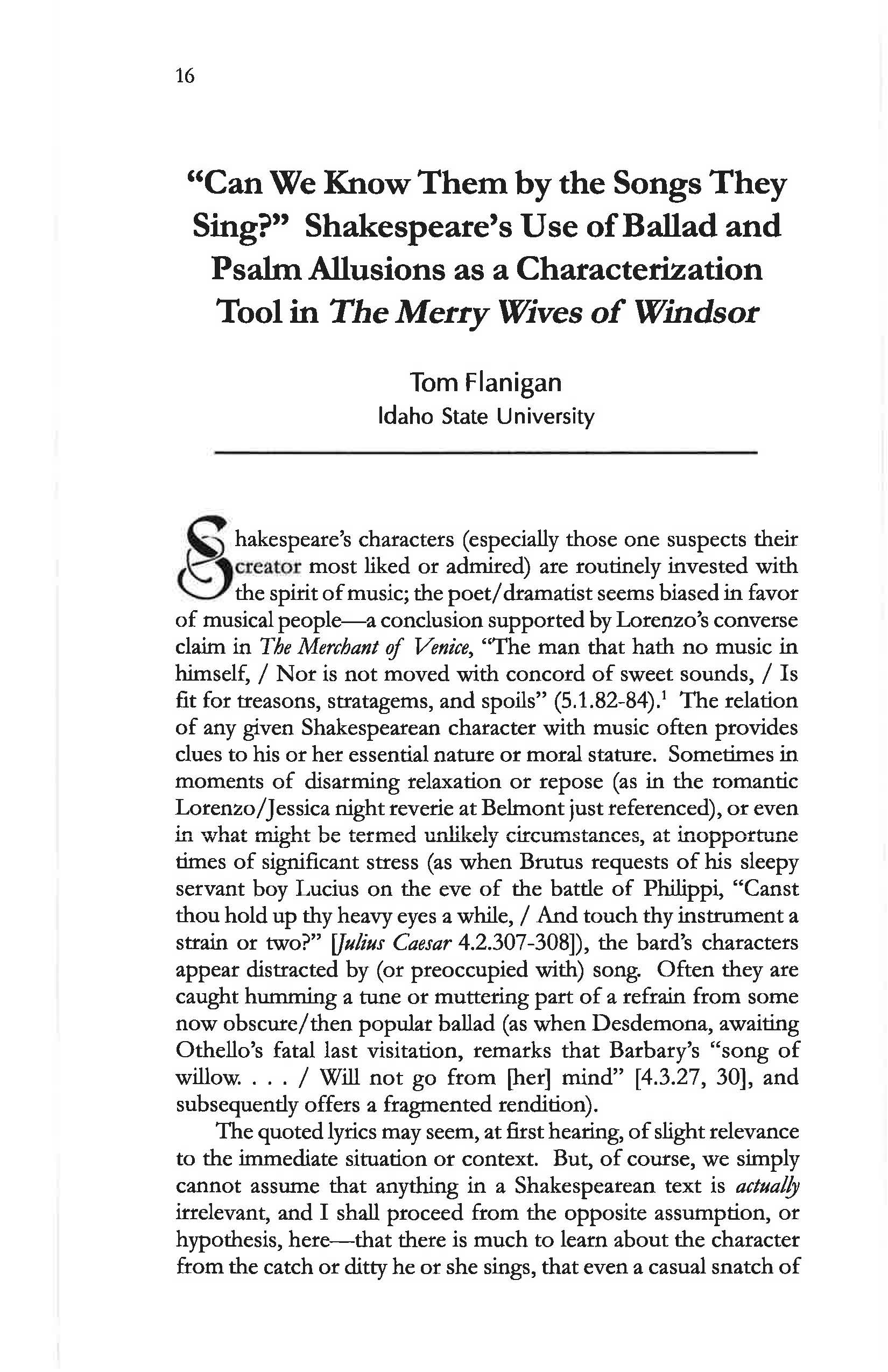"Can We Know Them by the Songs They Sing?" Shakespeare's Use of Ballad and Psalm Allusions as a Characterization Tool in The Merry Wives of Windsor
Main Article Content
Abstract
Shakespeare’s characters (especially those one suspects their creator most like or admired) are routinely invested with the spirit of music; the poet/dramatist seems biased in favor of musical people—a conclusion supported by Lorenzo’s converse claim in The Merchant of Venice, “The man that hath no music in himself, / Nor is not moved with concord of sweet sounds, / Is fit for treasons, stratagems, and spoils” (5.1.82-84).1 The relation of any given Shakespearean character with music often provides clues to his or her essential nature or mortal stature. Sometimes in moments of disarming relaxation or repose (as in the romantic Lorenzo/Jessica night reverie at Belmont just referenced), or even in what might be termed unlikely circumstances, at inopportune times of significant stress (as when Brutus requests of his sleepy servant boy Lucius on the eve of the battle of Philippi, “Canst thou hold up thy heavy eyes a while, / And touch thy instrument a strain or two?” [Julius Caesar 4.2.307-308[}, the bard’s characters appear distracted by (or preoccupied with) song. Often they are caught humming a tune or muttering part of a refrain from some now obscure/then popular ballad (as when Desdemona, awaiting Othello’s fatal last visitation, remarks that Barbary’s “song of willow…. / Will not go from [her] mind” [4.3.27, 30], and subsequently offers a fragmented rendition).
